I remember a time when my blog posts were exclusive to my blog. Those were the days when I had much more time to write. Those were the days before I was a priest!
Now that I am a priest, time is at a much greater premium. Anything I write will end up here, sooner or later. So here’s something I wrote today for an entirely different audience.
1. Why did you become a priest?
When I was nine or ten years old, I read The Story of a Soul, by St Thérèse of Lisieux. Thérèse taught me that God wants all of us to be saints, and she taught me how to be a saint. That conviction waxed and waned over the years, but it never left me.
When I finished school and moved out of home, I started going to the occasional weekday Mass as well as Sunday Mass, and soon I fell into a crowd of young Catholics who knew their faith – and knew Jesus Christ – much more deeply than I did. My resolution to pursue holiness was renewed. This had nothing to do with the priesthood though – it just meant falling in love with God, living a good life, and starting again whenever I fell away.
For a long time, I believed I could be a saint and be a husband and father and pursue a professional career. St Thomas More was an inspiring example. When I realised, through prayer, that God was calling me to be a priest I was shocked. This was not something that I wanted, but I knew this is what God wanted, so I signed up for the priesthood. God knows better than us what will make us happy.
2. Have there been many times that you have struggled with your faith?
My faith is shaken when I’m confronted with suffering.
About half way through my seminary training, a film was released in cinemas which related the crimes and cover-up of paedophile priests in America. My bishop saw it, and he recommended I watch it. So one Saturday evening, I went alone. (It’s not really the sort of movie you’d invite friends to watch.) I don’t cry at movies, but this time I did. At the end of the film, as people moved out of the cinema, I overheard a lot of derogatory remarks about priests and the Church. I walked back to the seminary, and sat alone in the chapel. I wasn’t really alone of course – I was sitting in front of the tabernacle. I asked myself why on earth I was giving my life to an institution which was capable of the evil I just watched on film. But I didn’t just ask myself questions – I asked Jesus a lot of questions too.
This is just one example. As a priest, I encounter people suffering in all sorts of different ways. This often challenges my faith, and I have to take it to prayer. If I don’t pray about it, it becomes an obstacle between me and Jesus. I become remote from him. This is my biggest struggle with faith. I think there’s symmetry in that. Goodness – especially the goodness of the saints – inspires my faith and nourishes it; evil and suffering challenge and even undermine my faith.
Two or three times in my life I have doubted the whole thing. “Maybe it’s all made up,” I suddenly think. “My whole life is a lie.” But this is a more superficial struggle. I keep praying and serving the Lord, and as suddenly as those doubts appeared, they just as suddenly disappear.
3. If you weren’t a priest what would you be?
Before I discerned a priestly vocation, I was pursuing a political career. Maybe I’d be working for a politician, or maybe I’d be in parliament myself. I’d probably be married by now, and maybe I’d have a few kids. I was very attached to these dreams once, but now they seem distant and unreal. I may as well imagine living 1,000 years in the future, or 1,000 years in the past.
4. Have you ever regretted being a priest?
When I realised God was calling me to be a priest, I grieved a lot. I had to bury my dreams of a career and family. The day I signed up for the seminary, I was very sad. I met the vocations director in his office, near St Patrick’s Cathedral in Melbourne, to start the application process. After our meeting I walked into the cathedral and knelt before our Lord in the tabernacle. I thanked him for the grace of my priestly vocation, but I asked another favour from him. “You’ve called me to be a priest. Now help me to love that calling.” At that time, I had no love for my calling at all.
Eight months later, I finally started my seminary training. By then, my prayers had been answered. God gave me a love for my vocation. In the ten years since, I have never regretted saying yes to God. I only regret those times when I have been less generous with him. It’s not enough just to say yes to God once. It has to be repeated every day, since our circumstances are always changing, and the implications of God’s will change too.
5. What has been your best moment as a priest?
The greatest days of my life were the day of my ordination and the day of my first Mass. That was the culmination of eight years study and discernment, and the beginning of my life as a priest.
On a more day-to-day level, I think my favourite moment of priestly life is hearing confessions. People suffer a lot, but they have so much faith in God, and they come to him with a humility and simplicity that moves me. In a sense, I’m an eavesdropper, listening in on a very personal encounter between God and one of his children. I learn so much from these encounters. I learn how to grow in humility; how to become more child-like. Very often, I find myself giving someone advice which must come from the Holy Spirit, because even as I’m saying it to someone else, I’m thinking, “This is good advice! I’ll follow it myself.” The Holy Spirit is a great teacher.
6. Is there any advice you could give to anyone thinking about becoming a priest?
Anyone contemplating a priestly vocation should first resolve to be a saint. A saint is someone who loves God more than they love themselves. This is what we’re created for, and God gives everyone the means to become a saint. The world needs saints.
Spend time with Jesus. Get to know him – by reading about him and thinking about him, but especially by talking to him.
Fall in love with God. That’s my advice.

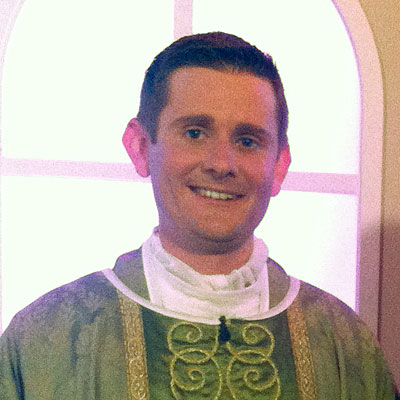
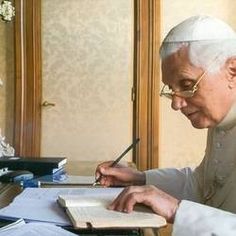
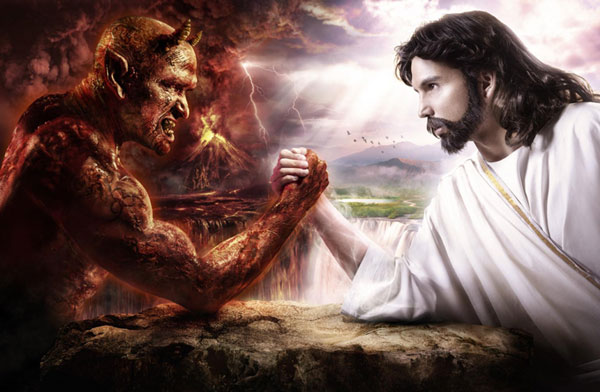
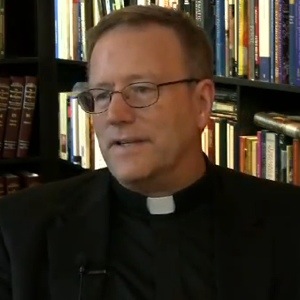
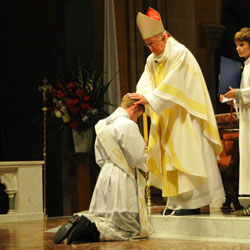
Thanks for this Father. As I discern my own vocation, I find reading the vocation stories of others to be quite helpful.
Cheers!
Tomorrow all roads lead to the Catholic Catheral and the headquarters of racing at Flemington! I will be in Melbourne but not going to of those two venues! Here are some tips! Race 2no10 Race3no8 Race6no11 Race 7no6 Race8 no 2,12, and 15. Race 9 no8 and 18. Remember all my bets are each way! Well have a good weekend especially you Joel! I bet you are happy because your footy team won!
I can’t speak for Joel, Simon, but he certainly did look happy in the sanctuary, as a newly ordained deacon. A great day! Deo Gratias.
“Two or three times in my life I have doubted the whole thing”
Doubt is the handmaid of faith.
That’s a great aphorism Christian, and encouraging. I’ll remember it.